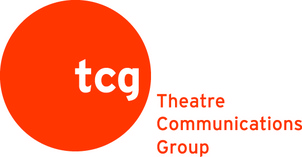 The following post is part of a blog salon series focusing on how theatre artists are responding to Trayvon Martin’s death, the trial and verdict, and the subsequent cultural response to those events. This series grew out of a series of discussion between myself, The New Black Fest’s artistic director Keith Josef Adkins, TCG's Associate Director of Communications August Schulenburg and TCG’s Director of Communications & Conferences Dafina McMillan. Please let us know if you'd like to contribute. GUS SCHULENBURG: How has the outcome of the Trayvon Martin trial impacted you as a theatre artist? As a citizen? As a human being? JACQUELINE LAWTON: As a theatre artist, it has cemented my desire to use each and every play that I write as a tool for social justice and change. Otherwise, the time and words were wasted. As a citizen, I am keenly aware that the struggle for civil rights is as much needed now as it ever was. What’s more, it is my duty, so long as I am alive on this earth, to do everything in my power to promote social awareness, race consciousness and compassion. I want to bring people together around these issues and encourage dialogue that moves us to a place of understanding, appreciation and respect for difference. As a human being, to be perfectly honest, I feel quite broken. Gus, if I wanted to have children, they would be brown. God help me, if they are boys. And there’s nothing, I can do to keep them safe … to keep them beyond the reaches of racism. GS: What actions are you taking, if any, to respond to that outcome? JL: At first, it was very difficult for me to respond. All I could think about was my brother and how this could have been him. I remembered the conversations my father would have with him about his behavior and attitude in the presence of whites. We were raised in East Texas … not too far from where, in 1999, James Byrd Jr. was beaten, chained by his ankles to the back of a pick-up truck and dragged to his death for more than two miles. Instead of responding, I read a lot of what was being written and listened to what was being said. I shared what resonated deeply with me on Twitter and Facebook. I connected with friends. The next morning in a fit of tears, I wrote a poem called, On the Morning After Not Guilty. I’m trying to respond … But a gunshot and shouts of no justice, no peace ring in my ears. I’m trying to respond to what has happened to Trayvon Martin … to his family … to the mothers of boys born with brown skin … to each of us across this nation. But a gunshot and shouts of no justice, no peace ring in my ears. I’m trying to respond to the fact that when I see young boys with brown skin on the street, on the metro, in the grocery store and in the classroom, I silently pray this prayer: Bless you, stay safe, keep your cool, and may you live long enough to see your grandchildren and a time when strangers don’t silently pray this prayer. But a gunshot and shouts of no justice, no peace ring in my ears. I’m trying to respond without remembering the cautionary words my mother and father shared with my brother when they taught him that his actions, words, glance and gaze could get him killed … not just for their intent, but for his brown skin. But a gunshot and shouts of no justice, no peace ring in my ears. I’m trying to respond without tears of pain, sorrow and disappointment to this egregious crime and miscarriage of justice. But a gunshot and shouts of no justice, no peace ring in my ears. I’m trying to respond in a way that moves this nation forward. But a gunshot and shouts of no justice, no peace ring in my ears. I’m trying to respond … But even that wasn’t enough… GS: How have you engaged, or will you engage, with those who feel differently about that outcome? JL: Yes, I have and am happy to continue doing so. Out of the blue, a woman I went to middle and high school with contacted me on Facebook. She accused me of hate mongering by sharing the articles and said that the only way race relations would improve in this country is if African Americans were taught not to make a distinction between the races. She said a number of other things as well and here this is what I wrote in response:
Then I went on to share a very personal story that I haven’t shared with anyone in a very long time: I remember once in 6th grade, when a mutual “friend” and her crew walked over to me after I had taken a drink from the water fountain. This friend said to me, “You know there was a time when you couldn’t drink out of the same water fountain as us.” I looked at her and said, “Yes, I remember. My parents told me about that.” Then she said, ” Don’t you wish you were white? Don’t you think it would be easier?” Now, as much as I knew it would be easier, I didn’t want to give her that truth. Instead, I said, “I want to be white as much as you want to be black.” The look of horror and disgust on her face taught me everything I needed to know about issues of race in America. We exchanged another round of emails and I responded with the following:
These issues are extremely complicated and larger than the two of us, but we listened to one another and spoke candidly. This is progress, but even that wasn’t enough … GS: What role does theatre have in changing the conditions that contributed to the death of Trayvon Martin and the acquittal of George Zimmerman? JL: With theatre, we can reflect the important issues, values, and challenges going on in society. I agree with Sarah Bellamy, Associate Artistic Director at Penumbra Theatre, who says that: “As image makers, we have an important role to play in moving audiences beyond superficial and stereotypical representations of peoples and cultures and toward three dimensional representations that encourage deeper learning with honor and respect.” I also agree with Dr. Manuel Pastor, director of the Program for Environmental and Regional Equity (PERE) at the University of Southern California, when he says “there is a need to push the conversation beyond that of self-expression to one of community building and democracy.” But in order for theatre to do this, we have to take responsibility for how to perpetually update the narrative: What theatre is now with regards to race, gender, ability, sexual orientation etc.? How is it reflective of the change that is happening in America? Theatres in this country who find themselves serving White, Black and Latino communities should be holding town hall forums and discussions around these issues. They should be commissioning local writers to capture the response of this moment in history so that lessons learned are discussed in depth and carried over to future generation so that such an egregious crimes and senseless loss of life never happens again. GS: How do the racial/cultural power dynamics of the theatre field challenge or reinforce the conditions that contributed to that outcome? JL: When theatres do not present work by playwrights of color or cast actors of color or hire people of color in leadership positions, this sends a clear message that our voices, experience and expertise are not welcome, relevant, respected or valued. In such instances, I feel that theatres are reinforcing the conditions that led to this outcome. We have to do better. Our season planning needs to reflect out 501c3 status to serve our communities. GS: So much of this work to make change grows out of the shining example of artists, cultural organizers and civil rights workers in the past and present. From whose example do you draw strength? JL: I am inspired by the efforts of Sarah Bellamy, Khanisha Foster, Ilana Brownstein, Adam Thurman, Otis Ramsey-Zoe, Shirley Serotsky, Megan Sandberg-Zakian, Al Heartley, and Andre Lancaster. I draw strength from Nina Simone, Audra Lorde, Sydney Poitier, Elizabeth Catlett, Maya Angelou, Toni Morrison, Jill Dolan, Derek Goldman, Gregg Henry, Jojo Ruf and James Baldwin. I am invigorated by the efforts of TCG. I have never seen an organization more committed to improving the conditions of diversity and inclusion in the American Theatre. The fact that their efforts are transparent, self-reflective and action-based is extraordinary to me. If you'd like to contribute your own post to one of these or any other TCG Circle series, please contact August Schulenburg, Theatre Communications Group's Associate Director of Communications, to learn how.
If you're interested in joining TCG's online year-round conference community, check out Conference 2.0.
0 Comments
Your comment will be posted after it is approved.
Leave a Reply. |
My BlogI'm a playwright, dramaturg, and teaching artist. It is here where you'll find my queries and musings on life, theater and the world. My posts advocate for diversity, inclusion, and equity in the American Theatre and updates on my own work. Please enjoy!
Categories
All
Archives
June 2020
Reading List
|

